Chrome Music Lab
Chrome Music Lab was developed by Google Creative Lab as part of an initiative to make music education more accessible and engaging through technology. Launched in March 2016, the platform was inspired by the desire to celebrate "Music in Our Schools Month" and to democratize music learning by leveraging web-based technologies that anyone can use. The project was spearheaded by Alex Chen from Google, and its development involved multiple team members with backgrounds in technology and creative arts. Chrome Music Lab stands out as a testament to Google's commitment to blending education with innovative technology, reaching millions of users globally (Chrome Music Lab) (blog.google) (Experiments with Google).
Differentiation: What Makes It Special Chrome Music Lab is unique in its approach by offering a collection of music-related experiments that anyone can play with, directly from their web browsers. It's designed to simplify complex concepts like rhythm, chords, and sound waves into interactive, hands-on experiences that are not only educational but also highly engaging. What sets it apart is its use of open-source technology such as the Web Audio API, Tone.js, and WebGL, which not only facilitates a seamless interactive experience but also encourages developers and educators to adapt and extend the experiments in their own educational contexts (Chrome Music Lab) (Experiments with Google).
How to Get Started Getting started with Chrome Music Lab is incredibly straightforward. Users do not need to create an account; they can directly access the experiments on any device with a web browser—be it a phone, tablet, or computer. This ease of access enhances its usability in homeschooling environments, where flexibility and simplicity are often key to integrating educational tools (Chrome Music Lab).
How It Works Chrome Music Lab is ideal for homeschooling as it allows for both independent and parent-guided learning sessions. The experiments are designed to be intuitive: students can start creating music within minutes. A typical session might involve experimenting with different sounds and patterns to learn music fundamentals or explore concepts like harmonics and oscillation. The activities can vary in duration, but most are suitable for short, interactive learning bursts that keep students engaged without requiring lengthy preparation (Chrome Music Lab).
Educational Content and Subjects Covered
Sound waves and vibrations
Rhythm and tempo
Melody and harmony
Music and mathematics integration
Creative music composition
What’s Good About It Users often praise Chrome Music Lab for its accessibility and the fun, interactive way it demystifies music theory concepts. The platform's ability to engage children and adults alike in music creation without any prior knowledge is frequently highlighted as a major advantage. The visual and interactive elements help learners see and hear the impact of their adjustments in real-time, making abstract concepts much easier to grasp (Chrome Music Lab).
What Could Be Improved While Chrome Music Lab offers a great introductory experience to music fundamentals, it lacks depth in certain areas that might be needed for advanced learners. The experiments do not progress to more complex music theory, which might limit its use for older or more advanced students. Additionally, the reliance on web technology means that it's only as effective as the internet access available, which could be a barrier in some homeschool settings (Chrome Music Lab).
Advice from Parents Parents recommend using Chrome Music Lab as a supplement to more formal music education tools. It's best utilized as a way to introduce concepts in a fun and engaging manner, which can then be deepened with additional resources or instruments. Many suggest incorporating it into regular music study sessions to break up the routine and keep children excited about learning music (Chrome Music Lab).
Who It’s An Ideal Fit For Chrome Music Lab is ideal for young learners and beginners who are just starting to explore music. Its interactive and visually engaging experiments make it especially suitable for children who thrive on hands-on learning and visual stimulation (Chrome Music Lab).
Who It’s Probably Not a Fit For This platform might not be the best fit for advanced music students or those looking for in-depth music theory instruction. It serves more as an exploratory tool rather than a comprehensive curriculum that can fully replace traditional music education (Chrome Music Lab).
Grades Suitable for a wide range of ages, typically from kindergarten through middle school.
Cost Free; accessible directly via web browsers.
Affiliate Disclaimer: Some links on our site are affiliate links, which means Modulo may earn a small commission if you purchase through them (at no cost to you). Rest assured, we only recommend resources we’ve rigorously vetted and truly love—affiliate link or not. Thank you so much for supporting our work!
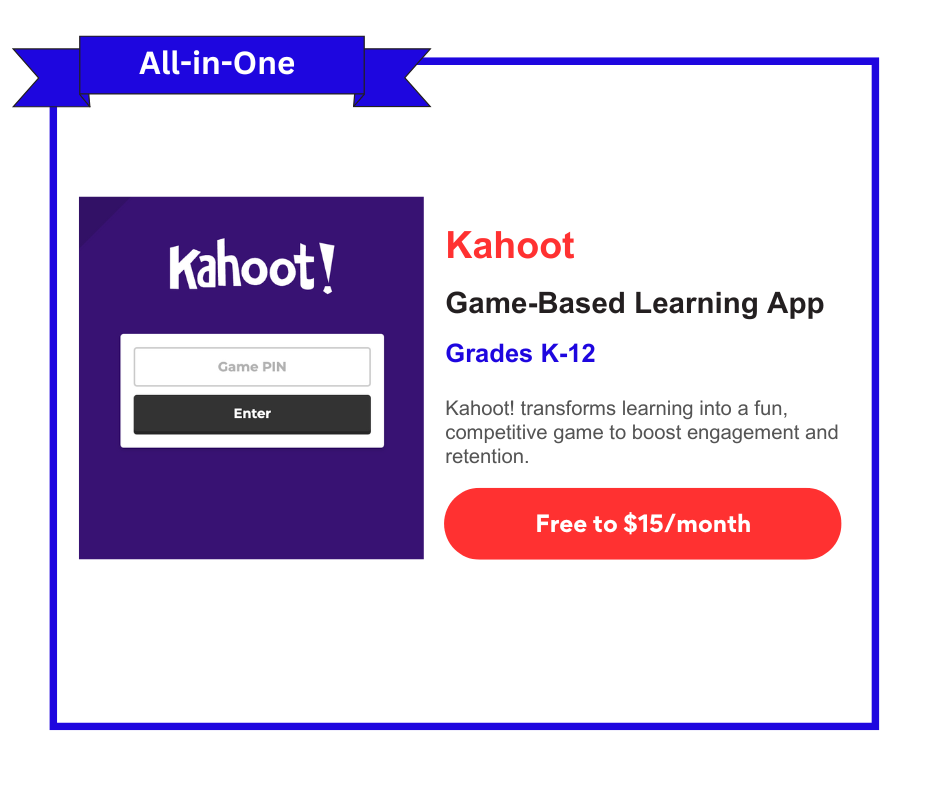
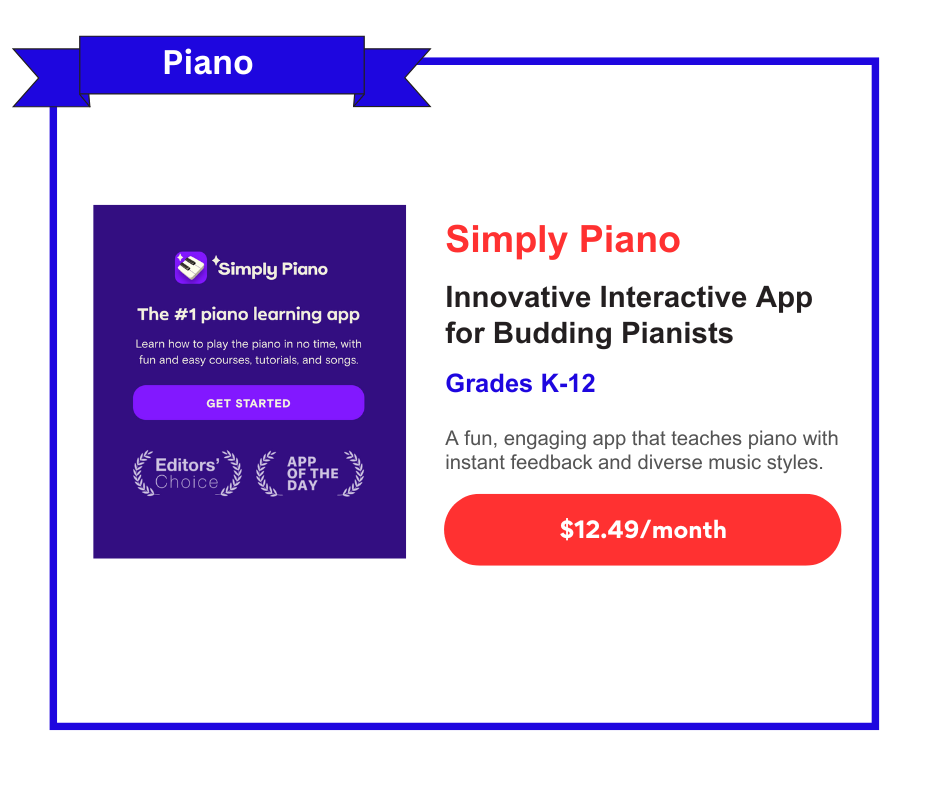



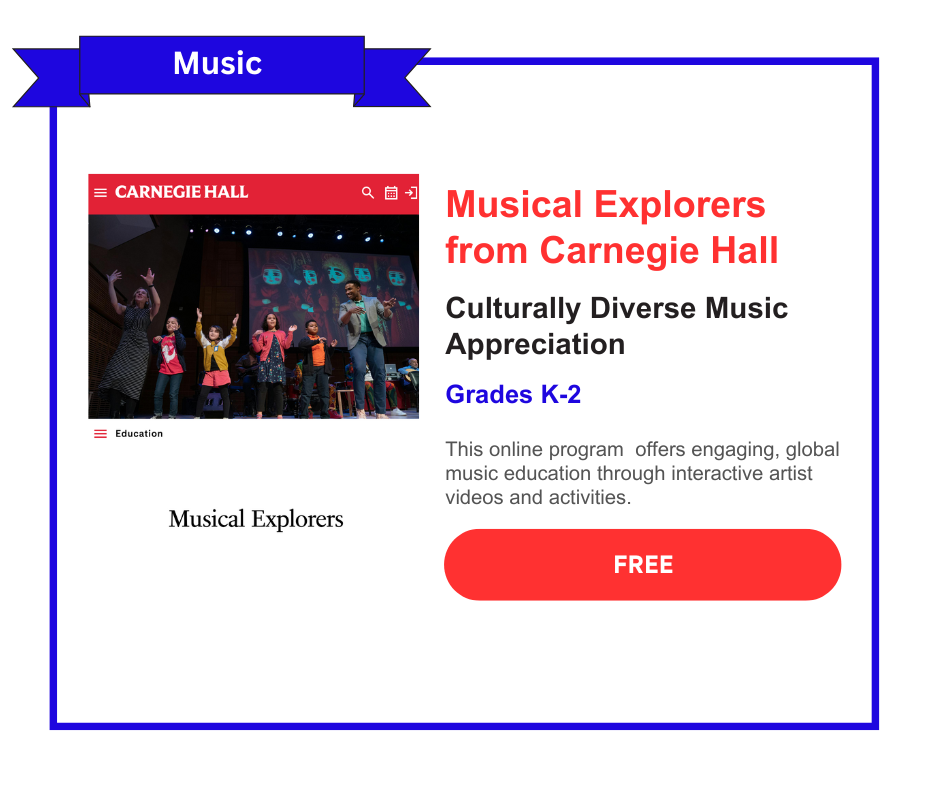
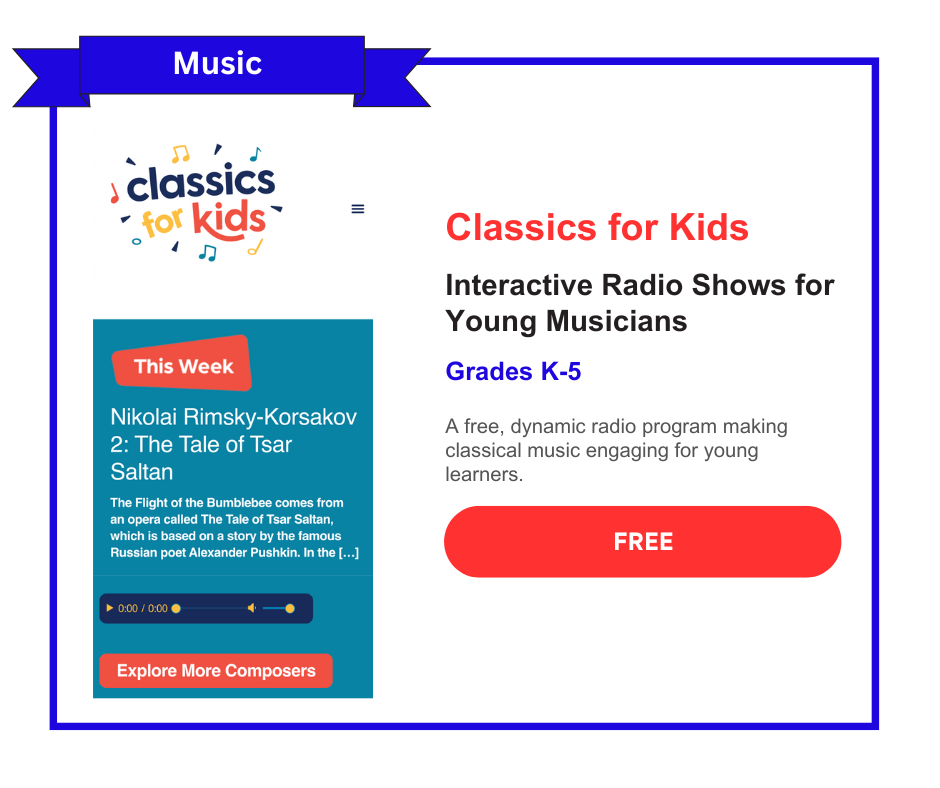
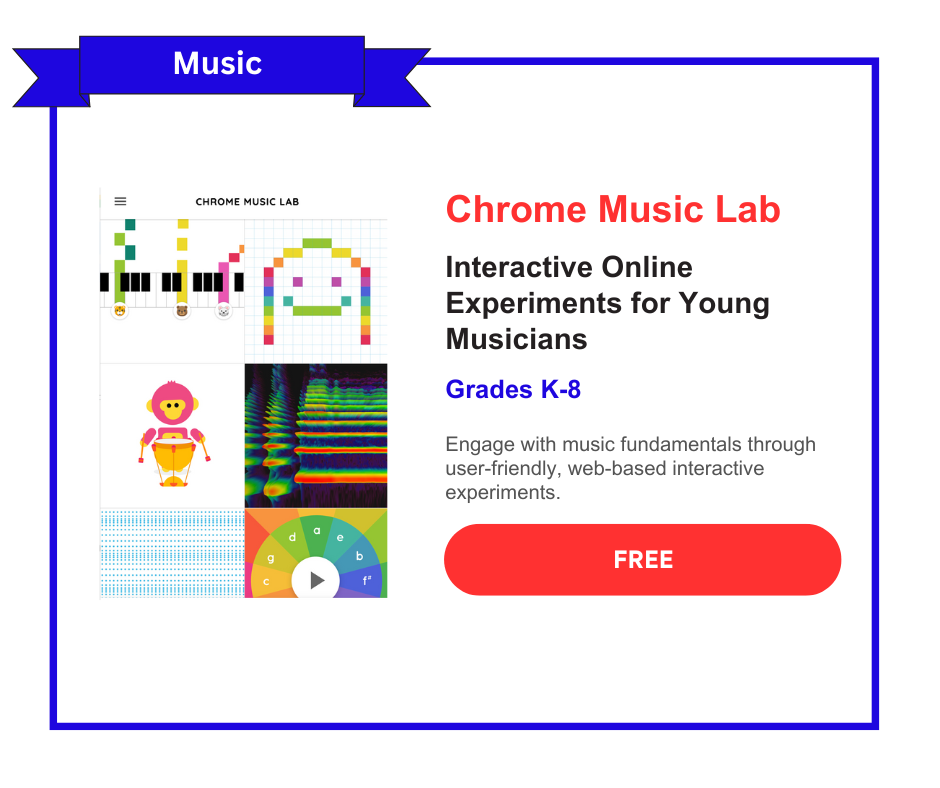
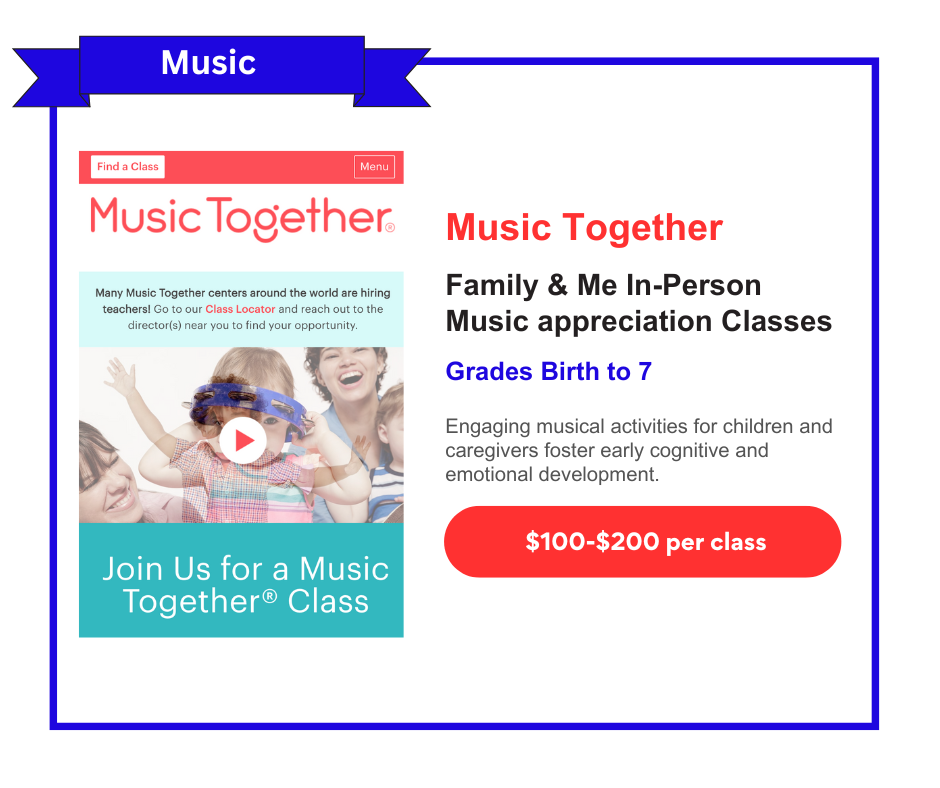

Explore how Prodigies Music Program transforms early music education with colorful, interactive lessons that engage and educate young learners. Perfect for homeschooling!